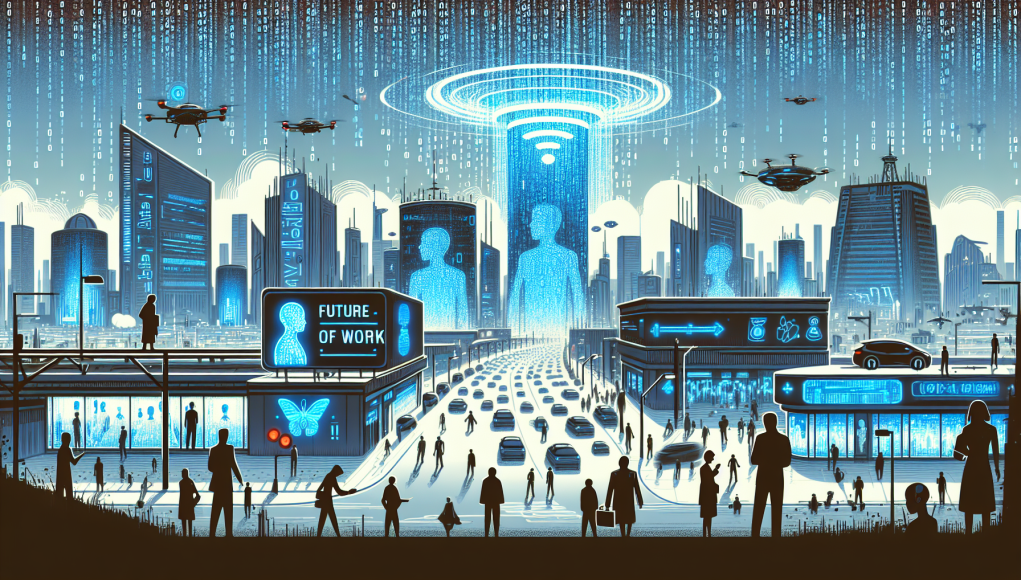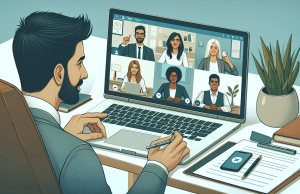15 Revolutionary AI-Driven Careers Reshaping the Future Workforce
The relentless march of AI is no longer a distant forecast but a tangible reality reshaping the very foundations of how we work, create, and innovate. From virtual assistants that anticipate our needs to algorithms crafting complex solutions, AI is unlocking career pathways previously unimagined. At the heart of this transformation is a spectrum of groundbreaking roles — perhaps none more fascinating than the Synthetic Reality Producer, a pioneer sculpting immersive experiences that blur the lines between physical and digital worlds.
As AI technologies evolve, they are giving rise to new professions that blend technical prowess with creative thinking, strategic insight, and human-centered design. These roles are more than job titles; they signify a seismic shift in workforce dynamics, catalyzing new industries and redefining organizational structures. This is not just about automation — it’s about augmentation, collaboration, and the emergence of hybrid roles bridging human intuition with machine intelligence.
1. Synthetic Reality Producer
Imagine crafting multi-dimensional worlds that merge augmented reality (AR), virtual reality (VR), and AI-driven simulations. Synthetic Reality Producers design these immersive environments used in entertainment, education, therapy, and training, making realities tangible and customizable at unthinkable scales.
2. AI Ethics Compliance Manager
With AI integration accelerating, ethical considerations have risen to paramount importance. These professionals guide organizations in aligning AI systems with societal norms and legal frameworks, ensuring fair, transparent, and responsible AI deployment.
3. Autonomous Systems Trainer
Autonomous vehicles, drones, and robots rely on continuous learning data. Trainers curate and refine datasets, guiding algorithms to improve decision-making in unpredictable environments.
4. AI-Powered Health Strategist
Health data analytics and AI diagnostics are revolutionizing medicine. These strategists harness AI insights to design healthcare plans that are personalized and predictive, improving patient outcomes.
5. Data Bias Auditor
AI systems are only as unbiased as their data. Auditors analyze datasets to root out unfair biases, ensuring AI decisions uphold equity and justice.
6. Conversational AI Designer
Building natural, empathetic AI speakers for customer service, therapy bots, or digital companions requires mastery of language nuance and emotional intelligence.
7. Quantum Machine Learning Specialist
Emerging quantum computing unlocks new AI possibilities. Specialists develop algorithms that leverage quantum speed for complex problem-solving.
8. Deepfake Detection Analyst
As synthetic media proliferates, these analysts deploy AI tools to authenticate content and protect trust in information.
9. AI-Enhanced Creative Director
Artistic visions augmented by AI-generated suggestions allow for fresh creativity in advertising, media, and entertainment.
10. Smart Infrastructure Coordinator
Urban networks infused with AI optimize energy, transport, and utilities. Coordinators manage these smart ecosystems for sustainability and efficiency.
11. Human-Machine Teaming Facilitator
Facilitators optimize workflows blending human skills with AI collaborators, ensuring harmony and peak productivity.
12. AI-Driven Supply Chain Architect
Designing resilient, adaptive logistics frameworks powered by AI mitigates disruptions and enhances global commerce.
13. Personalized Learning Engineer
AI tailors education to individual needs. Engineers build adaptive platforms that evolve with learners’ progress and interests.
14. Synthetic Data Developer
When real data is scarce or sensitive, synthetic datasets fuel AI training while preserving privacy and diversity.
15. Cybersecurity AI Analyst
Defenders harness AI weapons and shields against increasingly sophisticated cyber threats, anticipating and neutralizing attacks.
The rise of these AI-driven roles heralds more than just career evolution. It embodies a renaissance in how human ingenuity and artificial intelligence converge. For the workforce, this means opening doors to skillsets combining empathy, creativity, critical thinking, and technical fluency. For industries, it means agility and innovation powered by hybrid human-AI teams.
In embracing these new professions, organizations and individuals are crafting not just jobs but futures where technology amplifies humanity’s best qualities. This ongoing transformation challenges old paradigms and invites all of us to imagine what work will become when imagination, machines, and people unite.

























